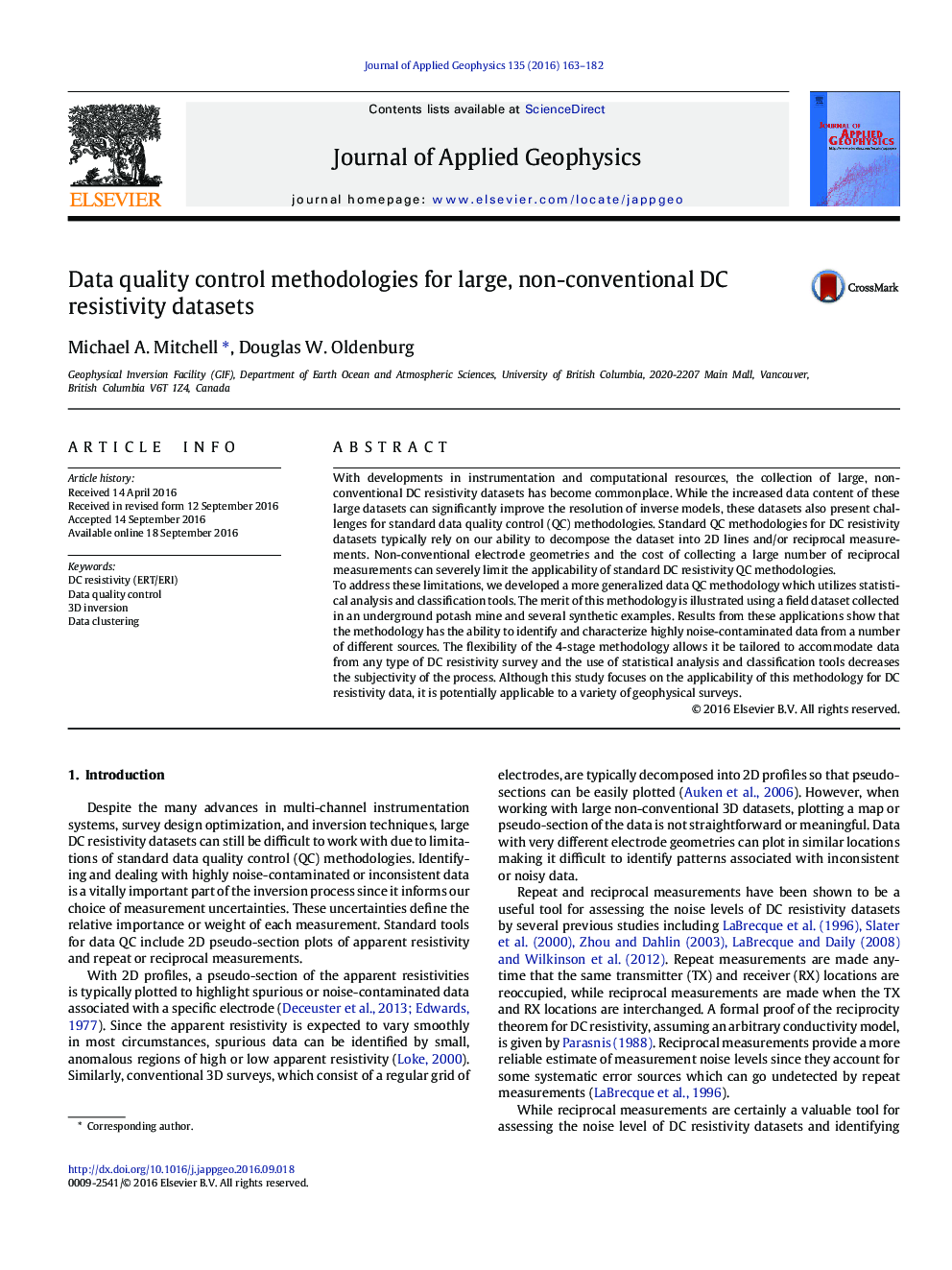| کد مقاله | کد نشریه | سال انتشار | مقاله انگلیسی | نسخه تمام متن |
|---|---|---|---|---|
| 4739700 | 1641116 | 2016 | 20 صفحه PDF | دانلود رایگان |

• A new data QC methodology for large, non-conventional DC resistivity datasets
• Overcomes limitations of standard QC methodologies
• Identifies and characterizes highly contaminated data from different noise sources
• Utilizes statistical analysis and classification tools to reduce subjectivity
• Methodology tested using field data and synthetic examples
With developments in instrumentation and computational resources, the collection of large, non-conventional DC resistivity datasets has become commonplace. While the increased data content of these large datasets can significantly improve the resolution of inverse models, these datasets also present challenges for standard data quality control (QC) methodologies. Standard QC methodologies for DC resistivity datasets typically rely on our ability to decompose the dataset into 2D lines and/or reciprocal measurements. Non-conventional electrode geometries and the cost of collecting a large number of reciprocal measurements can severely limit the applicability of standard DC resistivity QC methodologies.To address these limitations, we developed a more generalized data QC methodology which utilizes statistical analysis and classification tools. The merit of this methodology is illustrated using a field dataset collected in an underground potash mine and several synthetic examples. Results from these applications show that the methodology has the ability to identify and characterize highly noise-contaminated data from a number of different sources. The flexibility of the 4-stage methodology allows it be tailored to accommodate data from any type of DC resistivity survey and the use of statistical analysis and classification tools decreases the subjectivity of the process. Although this study focuses on the applicability of this methodology for DC resistivity data, it is potentially applicable to a variety of geophysical surveys.
Journal: Journal of Applied Geophysics - Volume 135, December 2016, Pages 163–182